- Home
- George R. R. Martin
Fevre Dream Page 6
Fevre Dream Read online
Page 6
Fortunately, there were no rafts about when they put into Paducah and tied up. Marsh took one look at the cargo waiting on the riverfront—which included several towering stacks of crates and some bales of tobacco—and decided that it would be easy to get some more freight onto the main deck. It would be a shame, he decided, to steam away from Paducah and leave all this custom to some other boat.
Already the Fevre Dream was secure to the wharf, and swarms of roustabouts were laying down planks and starting to unload. Hairy Mike moved out among them, yelling “Quick now, you ain’t no cabin passenger out for no stroll,” and “You drop that, boy, and I’m gone drop this here iron right longside you head,” and other such things. The stage came down with a whunk, and a few Paducah passengers began to disembark.
Marsh made up his mind. He went to the clerk’s office, where he found Jonathon Jeffers working over some bills of lading. “You got to do those now, Mister Jeffers?” he asked.
“Hardly, Cap’n Marsh,” Jeffers replied. He removed his spectacles and wiped them on a neckerchief. “These are for Cairo.”
“Good,” Marsh said. “Come on with me. Going to go ashore and find out who owns all that freight settin’ out there in the sun, and where it’s bound to. Figure it’s got to be going St. Louis way, some of it, and maybe we can make ourself some money.”
“Excellent,” Jeffers replied. He got off his stool, straightened his neat black coat, checked to make sure the big iron safe was locked, and picked up his sword cane. “I know a fine grog shop in Paducah,” he added as they left.
Marsh’s venture proved well worthwhile. They found the tobacco shipper easily enough, and took him to the grog shop, where Marsh persuaded him to consign his goods to the Fevre Dream and Jeffers dickered out a good price. It took some three hours, but Marsh was feeling damned pleased with the bit of work when he and Jeffers came strolling back to the riverfront and the Fevre Dream. Hairy Mike was lounging on the wharf, smoking a black cigar and talking with the mate from some other boat, when they returned. “That’s ours now,” Marsh told him, pointing out the tobacco with his stick. “Get your boys to load it quick, so we can get underway.”
Marsh leaned on the railing of the boiler deck, shaded and content, watching them scramble and tote the bales while Whitey got the steam up. He chanced to notice something else; a line of horse-drawn hotel omnibuses waiting on the road just off the steamboat landing. Marsh stared at them curiously for a moment, pulling at his whiskers, then went on up to the pilot house.
The pilot was having a slice of pie and a cup of coffee. “Mister Kitch,” Marsh told him, “don’t take her out until I tell you so.”
“Why’s that, Cap’n? She’s almost loaded, and the steam’s up.”
“Look out there,” Marsh said, lifting his stick. “Them omnibuses are bringing passengers to the landing, or waiting for ’em to arrive. Not our passengers, neither, and they don’t meet every little stern-wheeler that puts in. I got myself a hunch.”
A few moments later, his hunch was rewarded. Spewing steam and smoke and sparkling down the Ohio fast as the devil, a long classy side-wheeler came into sight. Marsh recognized her almost at once, even before he could read her name; the Southerner, of the Cincinnati & Louisville Packet Company. “I knew it!” he said. “She must have left Louisville a half-day after we did. She made better time, though.” He moved to the side window, brushed aside the fancy curtains that were shutting out the hot afternoon sun, and watched the other steamer pull in, tie up, and begin to discharge passengers. “She won’t take long,” Marsh said to his pilot. “No freight to load or unload, just passengers. You let her pull out first, you understand? Let her get down the river a bit, then you back out and go after her.”
The pilot finished his last forkful of pie and wiped a bit of meringue from the corner of his mouth with his napkin. “You want me to let the Southerner get ahead of us and then try to catch her? Cap’n, we’ll be breathin’ her steam all the way to Cairo. After that she’ll be out of sight.”
Abner Marsh clouded up like a thunderhead about to break. “What do you think you’re sayin’, Mister Kitch? I don’t want to lissen to no talk like that. If you ain’t pilot enough to do it, just say so, and I’ll kick Mister Daly out of bed and get him on up here to take the wheel.”
“That’s the Southerner,”Kitch insisted.
“And this is the Fevre Dream, and don’t you forget it!” Marsh shouted. He turned and stormed from the cabin, scowling. Damn pilots all thought they were kings of the river. Of course they were, once the boat was on the river, but that didn’t give them no cause to go bellyaching about a little race and doubting his steamer.
His fury faded when he saw that the Southerner was taking on passengers already. He had been hoping for something like this from the minute he spied the Southerner over across the river back in Louisville, but he hadn’t dared hope too hard. If Fevre Dream could catch the Southerner, her reputation was halfway made, once folks along the river heard about it. The other steamer, and her sister boat the Northerner, were the pride of their line. They were special boats, built back in ’53 especially for speed. Smaller than the Fevre Dream, they were the only steamers Marsh knew of that didn’t carry freight, only passengers. He couldn’t see for a minute how they turned a profit, but that wasn’t important. What was important was how fast they were. The Northerner had set a new record for the Louisville—St. Louis run back in ’54. The Southerner broke it the following year, and still had the fastest time; one day and nineteen hours even. High up on her pilot house, she wore the gilded antlers that marked her as the fleetest steamer on the Ohio.
The more he considered the prospect of taking her on, the more excited Abner Marsh grew. All of a sudden it occurred to him that this was not something Joshua would care to miss, beauty sleep or no. Marsh stomped forward to York’s cabin, determined to roust him out. He rapped sharply on the door with the head of his walking stick.
No answer. Marsh rapped again, louder and more insistently. “Hallo in there!” he boomed. “Get yourself out of bed, Joshua, we’re goin’ to run us a race!”
Still no sound came from within York’s cabin. Marsh tried the door and found it locked. He rattled it, pounded on the walls, knocked on the shuttered window, shouted; all to no avail. “Damn you, York,” he said, “get yourself up or you’re goin’ to miss it.” Then he had an idea. He walked back near the pilot house. “Mister Kitch, sir,” he shouted up. Abner Marsh could shout with the best of them when he put his lungs into it good. Kitch popped his head out the door and looked down at him. “You blow that whistle,” Marsh told him, “and keep blowing it till I wave at you, you hear?”
He returned to York’s locked door and began pounding again, and suddenly the steam whistle began to shriek. Once. Twice. Three times. Long angry blasts. Marsh flailed away with his stick.
York’s cabin door came open.
Marsh took one look at York’s eyes and his mouth hung open in mid-shout. The steam whistle sounded again, and he waved hurriedly. It fell silent. “Get in here,” Joshua York said in a cold whisper.
Marsh entered, and York swung the door shut behind him. Marsh heard him throw the lock. He didn’t see it. He didn’t see anything. Once the door closed, York’s cabin was black as the pit. Not even a crack of light snuck in through the door or the shuttered, curtained windows. Marsh felt like he’d gone blind. But in his mind’s eye, a vision lingered, the last thing he’d seen before the darkness closed in: Joshua York, standing in the doorway naked as the day he was born, his skin deathly white as alabaster, his lips drawn back in animal rage, his eyes like two smoky gray slits opening onto hell.
“Joshua,” Marsh said, “can you turn on a lamp? Or pull back a curtain, or something? I can’t see.”
“I can see just fine,” York’s voice replied from the darkness behind him. Marsh hadn’t heard him move. He turned, and blundered into something. “Hold still,” York commanded, with such force and fury in his tone that Marsh h
ad no choice but to obey. “Here, I’ll give you a light, before you wreck my cabin.”
A match flared across the room, and York touched it to his reading candle, then seated himself on the edge of his rumpled bed. He’d donned a pair of trousers, somehow, but his face was hard and terrible. “There,” he said. “Now, why are you here? I warn you, you had better have a reason!”
Marsh began to grow angry. No one talked to him that way, no one. “The Southerner is next to us, York,” he snapped. “The fastest damn boat on this river, got the horns and everything. I’m fixin’ to run Fevre Dream after her, and I thought you’d want to see. If you don’t think that’s reason enough for getting you out of bed, then you ain’t no steamboatman and you never will be! And you watch your manners with me, you hear?”
Something flared in Joshua York’s eyes, and he started to rise, but even as he did he checked himself, and turned away. “Abner,” he said. He paused, frowning. “I am sorry. I did not intend to treat you with disrespect, or to frighten you. Your intent was good.” Marsh was startled to see his hand clench violently, before he steadied it. York crossed the dim cabin with three quick, purposeful strides. On his desk rested the bottle of his private drink, the one Marsh had caused him to open the night before. He poured out a full goblet of it, tossed back his head, and drained it straightaway. “Ah,” he said softly. He swung about to face Marsh again. “Abner,” he said, “I’ve given you your dream boat, but not as a gift. We struck a bargain. You are to obey such orders as I give, respect my eccentric behavior, and ask no questions. Do you mean to live up to your half of our bargain?”
“I’m a man of my word!” Marsh said stoutly.
“Good,” said York. “Now listen. You meant well, but it was wrong of you to wake me as you did. Never do it again. Never. For any reason.”
“If the boiler blows and we catch afire, I’m to let you crisp in here, is that it?”
York’s eyes glittered in the half-light. “No,” he admitted. “But it might be safer for you if you did. I am unruly when woken suddenly. I am not myself. I have been known, at such times, to do things I later regret. That was why I was so short with you. I apologize for it, but it would happen again. Or worse. Do you understand, Abner? Never come in here when my door is locked.”
Marsh frowned, but he could think of nothing to say. He had struck the bargain, after all; if York wanted to get all upset about a little sleep, it was his business. “I understand,” he said. “Your apology is accepted, and you got mine, if it matters. Now, do you want to come up and watch us take the Southerner? Seein’ as how you’re woke already and all?”
“No,” said York, grim-faced. “It is not that I have no interest, Abner. I do. But—you must understand—I need my rest, vitally. And I do not care for daylight. The sun is harsh, burning. Have you ever had a bad burn? If so, you can understand. You’ve seen how fair I am. The sun and I do not agree. It is a medical condition, Abner. I do not care to discuss it further.”
“All right,” Marsh said. Beneath his feet, the deck began to vibrate slightly. The steam whistle sounded its ear-piercing wail. “We’re backing out,” Marsh said. “I got to go. Joshua, I’m sorry to have bothered you, truly I am.”
York nodded, turned away, and began to pour himself more of his noxious drink. “I know.” He sipped at it this time. “Go,” he said. “I will see you this evening, at supper.” Marsh moved toward the door, but York’s voice stopped him before he could open it. “Abner.”
“Yes?” Marsh said.
Joshua York favored him with a pale thin smile. “Beat her, Abner. Win.”
Marsh grinned, and left the cabin.
When he reached the pilot house, the Fevre Dream had backed clear of the landing, and was reversing her paddles. The Southerner was already well down the river. The pilot house was crowded with a good half-dozen off-duty pilots, talking and chewing tobacco and making side wagers on whether or not they’d catch the other boat. Even Mister Daly had interrupted his leisure to come up and observe. The passengers all knew something was afoot; the lower decks were crowded as they sat along the railings and pushed onto the forecastle for a good view.
Kitch swung the great black-and-silver wheel, and the Fevre Dream angled out toward the main channel, sliding into the brisk current behind her rival. He called down for more steam. Whitey threw some pitch in the furnaces and they gave the folks on shore a show, puffing out great clouds of dense black smoke as they steamed away. Abner Marsh stood behind the pilot, leaning on his stick and squinting. The afternoon sun shone on the clear blue water ahead of them, leaving blinding reflections that danced and shimmered and hurt the eyes, except where the churning wake of the Southerner’s paddle wheels had cut them all up into a thousand fiery pieces.
For a few moments it looked easy. The Fevre Dream surged forward, steam and smoke flying from her, American flags fore and aft flapping like the devil, her wheels slapping against the water in an ever-faster tempo, engines rumbling below. The gap between her and the other steamer began to diminish visibly. But the Southerner was no Mary Kaye, no two-bit stern-wheeler to be left behind at will. It wasn’t long before her captain or her pilot realized what was going on, and her reply was a taunting lurch of speed. Her smoke thickened and came streaming back at them, and her wake grew even more violent and choppy, so Kitch had to swing the Fevre Dream wide a bit to avoid it, losing part of the current as he did. The distance between them widened again, then held steady.
“Keep after her,” Marsh told his pilot after it was clear that the two steamers were holding their positions. He left the pilot house and went searching for Hairy Mike Dunne, who he finally located on the forecastle of the main deck, with his boots up on a crate and a big cigar in his mouth. “Round up the roustas and deckhands,” Marsh said to the mate. “I want ’em to trim boat.” Hairy Mike nodded, rose, ground out his smoke, and started bellowing.
In a few moments most of the crew could be found aft and larboard, to partially offset the weight of the passengers, the majority of whom were crowded up forward and starboard to watch the race. “Damn passengers,” Marsh muttered. The Fevre Dream, now slightly better balanced, began to creep up on the Southerner once more. Marsh returned to the pilot house.
Both boats were going at it hard now, and they were pretty well matched. Abner Marsh figured the Fevre Dream was more powerful but it wasn’t enough. She was heavily laden with freight and running low in the water and in the Southerner’s wake to boot, so the waves kicked up over her head a bit and slowed her, while the Southerner skipped along easy as you please, with nothing aboard but passengers and nothing ahead but a clear river. Now, barring breakdowns or accidents, it was up to the pilots. Kitch was intent at the wheel, handling her easy, doing his damndest to pick up a few minutes at every chance. Behind him, Daly and the vagabond pilots were babbling away, full of advice on the river and its stage and how best to run it.
For more than an hour the Fevre Dream chased the Southerner, losing sight of her once or twice around bends, but edging closer each time as Kitch shaved it tight coming around. Once they got close enough so Marsh could make out the faces of the passengers leaning on the other boat’s aft railings, but then the Southerner kicked forward again and restored the distance between them. “Bet you they just changed pilots,” Kitch said, spitting a wad of tobacco juice into a nearby cuspidor. “See the way she perked up there?”
“I seen,” Marsh growled. “Now I want to see us perk up a mite too.”
Then they got their break. One moment the Southerner was holding steady in front of them, sweeping around a densely wooded bend. Then all of a sudden her whistle started to hooting, and she slowed, and trembled, and her side wheels started to back.
“Careful,” Daly said to Kitch. Kitch spat again and moved the wheel, carefullike, and the Fevre Dream nosed across the turbulent wake of the Southerner to go wide and starboard of her. When they were halfway round the bend, they saw the cause of the trouble; another big steamer, main
deck all but buried beneath bales of tobacco, had run aground on a sandbar. Her mate and crew were out with spars and winches, trying to grasshopper her over. The Southerner had almost run right into ’em.
For a long few minutes the river was chaotic. The men on the bar were all shouting and waving, the Southerner backed like the devil, the Fevre Dream steamed toward clear water. Then the Southerner reversed her wheels again, and her head turned and it looked as though she was trying to cross right in front of the Fevre Dream. “Damn egg-suckin’ idyut,” Kitch said, and he swung the wheel a little more and told Whitey to ease up on the larboard. But he didn’t back, or try to stop her. The two big steamers edged toward each other, closer and closer. Marsh could hear passengers crying out in alarm down below, and there was a second or two when even he thought they were going to collide.
But then the Southerner eased off herself, and her pilot swung her bow downstream again, and the Fevre Dream nosed by her with feet to spare. Someone began to cheer below.
“Keep her goin’,” Marsh muttered, so low that no one could have heard him. The Southerner had her wheels kicking up spray and was hot after them, behind now, but not by much, running a bare boat’s length astern. All the damn passengers on the Fevre Dream rushed aft, of course, and all the crew had to rush forward, so the steamer shook to all the running footsteps.
The Southerner was gaining on them again. She was running to their larboard, parallel and just behind. Her bow came up to the Fevre Dream’s stern now, and she was creeping up inch by inch. The sides of the two steamers were close enough so that passengers could have jumped from one to the other, if they’d had a mind to, though the Fevre Dream stood taller. “Damn,” said Marsh, when the other boat drew almost abreast of them. “Enough is enough. Kitch, call down and tell Whitey to use my lard.”

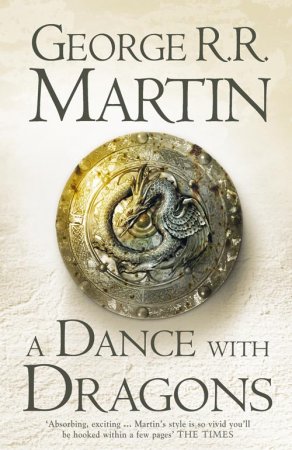 A Dance with Dragons
A Dance with Dragons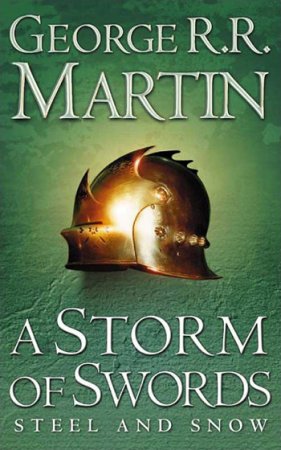 A Storm of Swords
A Storm of Swords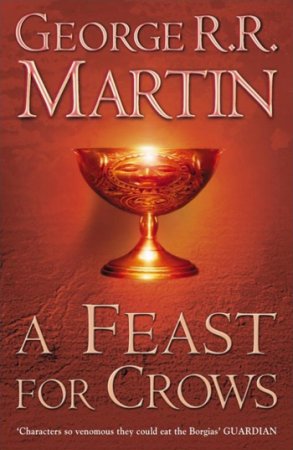 A Feast for Crows
A Feast for Crows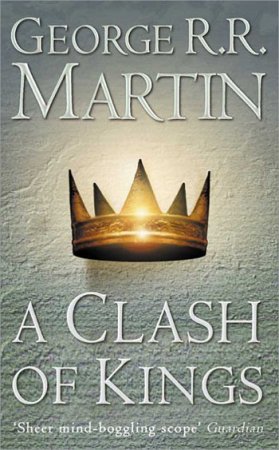 A Clash of Kings
A Clash of Kings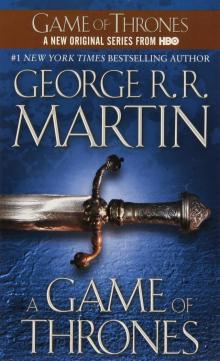 A Game of Thrones
A Game of Thrones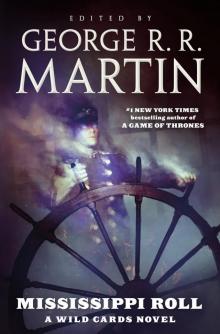 Mississippi Roll
Mississippi Roll Wild Cards V: Down and Dirty
Wild Cards V: Down and Dirty Busted Flush
Busted Flush When the Devil Drives
When the Devil Drives Dying of the Light
Dying of the Light The Ice Dragon
The Ice Dragon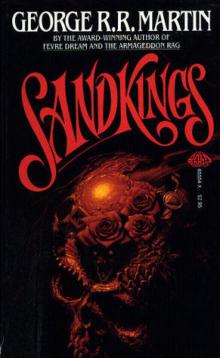 Sandkings
Sandkings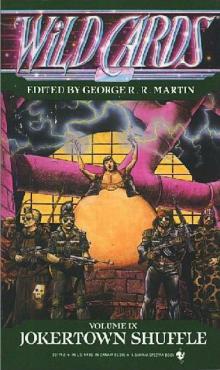 Jokertown Shuffle
Jokertown Shuffle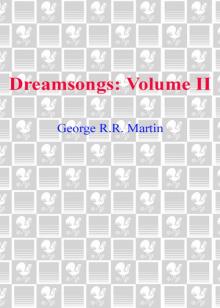 Dreamsongs. Volume II
Dreamsongs. Volume II Deuces Down
Deuces Down When We Were Heroes
When We Were Heroes Warriors
Warriors In the House of the Worm
In the House of the Worm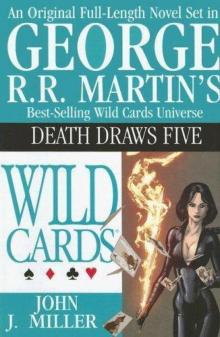 Death Draws Five
Death Draws Five Dreamsongs. Volume I
Dreamsongs. Volume I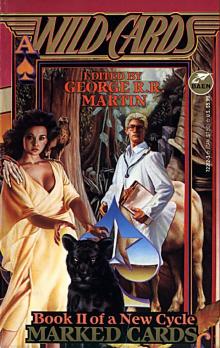 Marked Cards
Marked Cards Dreamsongs
Dreamsongs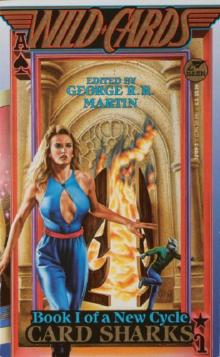 Card Sharks
Card Sharks Dangerous Women
Dangerous Women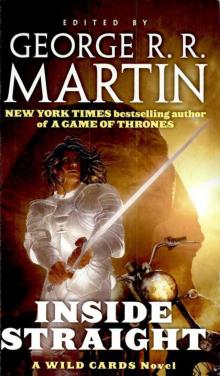 Inside Straight
Inside Straight Turn of the Cards
Turn of the Cards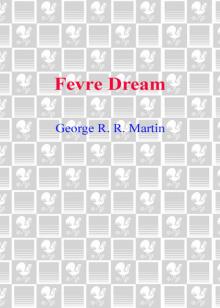 Fevre Dream
Fevre Dream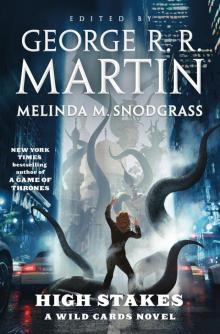 High Stakes: A Wild Cards Novel
High Stakes: A Wild Cards Novel Windhaven
Windhaven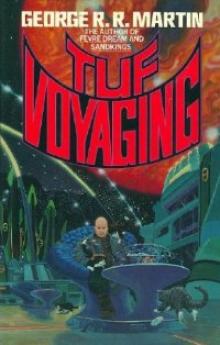 Tuf Voyaging
Tuf Voyaging Double Solitaire
Double Solitaire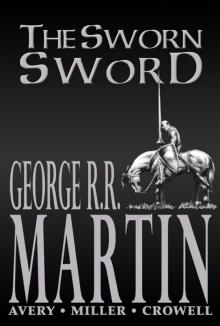 The Sworn Sword
The Sworn Sword Low Chicago
Low Chicago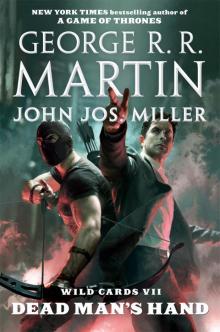 Dead Man's Hand
Dead Man's Hand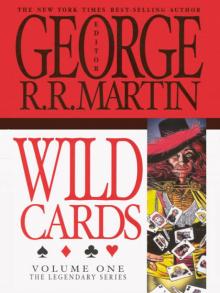 Wild Cards
Wild Cards Black Trump
Black Trump One Eyed Jacks
One Eyed Jacks Wild Cards: Aces Abroad
Wild Cards: Aces Abroad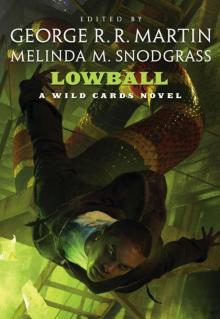 Lowball: A Wild Cards Novel
Lowball: A Wild Cards Novel Double Solitaire (2019 Edition)
Double Solitaire (2019 Edition) Dealer's Choice
Dealer's Choice Ace in the Hole
Ace in the Hole A Song for Lya: And Other Stories
A Song for Lya: And Other Stories Three Kings
Three Kings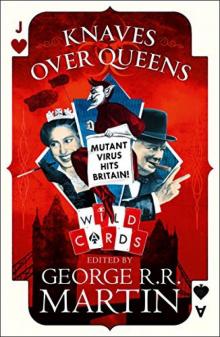 Knaves Over Queens
Knaves Over Queens Joker Moon
Joker Moon One Eyed Jacks wc-8
One Eyed Jacks wc-8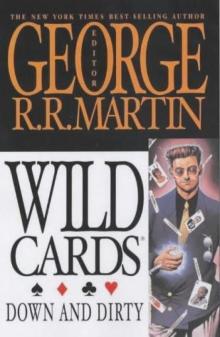 Down And Dirty wc-5
Down And Dirty wc-5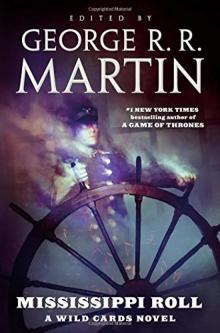 Mississippi Roll_A Wild Cards Novel
Mississippi Roll_A Wild Cards Novel A Feast for Dragons
A Feast for Dragons The Sworn Sword ttodae-2
The Sworn Sword ttodae-2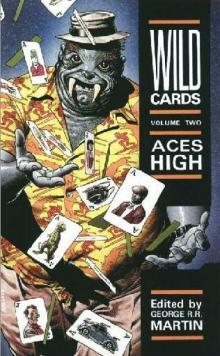 Aces High wc-2
Aces High wc-2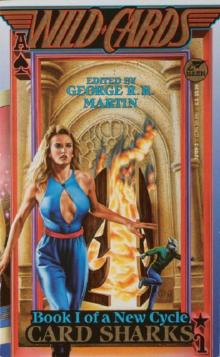 Wild Cards 13 : Card Sharks
Wild Cards 13 : Card Sharks Way of the Wizard
Way of the Wizard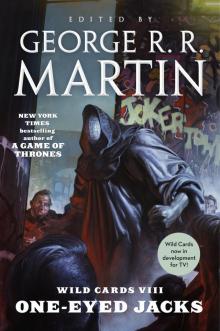 Wild Cards VIII: One-Eyed Jacks
Wild Cards VIII: One-Eyed Jacks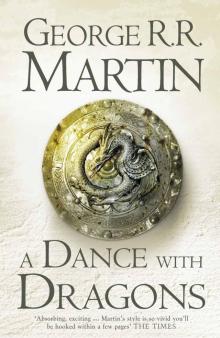 A Dance With Dragons: Book 5 of A Song of Ice and Fire (Song of Ice & Fire 5)
A Dance With Dragons: Book 5 of A Song of Ice and Fire (Song of Ice & Fire 5) The Princess and The Queen, Or, The Blacks and The Greens (a song of ice and fire)
The Princess and The Queen, Or, The Blacks and The Greens (a song of ice and fire)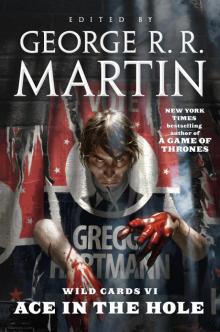 Wild Cards VI--Ace in the Hole
Wild Cards VI--Ace in the Hole The World of Ice & Fire: The Untold History of Westeros and the Game of Thrones (A Song of Ice and Fire)
The World of Ice & Fire: The Untold History of Westeros and the Game of Thrones (A Song of Ice and Fire)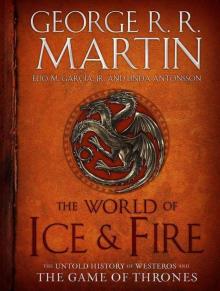 The World of Ice & Fire: The Untold History of Westeros and the Game of Thrones
The World of Ice & Fire: The Untold History of Westeros and the Game of Thrones Busted Flush wc-19
Busted Flush wc-19 A Knight of the Seven Kingdoms
A Knight of the Seven Kingdoms Nightflyers: The Illustrated Edition
Nightflyers: The Illustrated Edition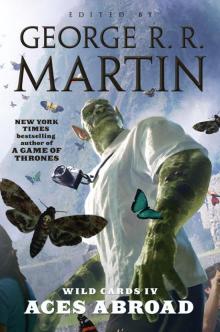 Wild Cards IV
Wild Cards IV Portraits of His Children
Portraits of His Children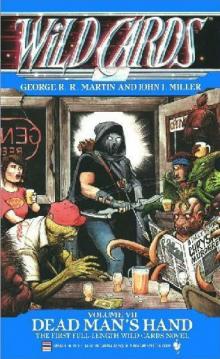 Dead Mans Hand wc-7
Dead Mans Hand wc-7 Jokers Wild wc-3
Jokers Wild wc-3 The Lonely Songs of Laren Dorr
The Lonely Songs of Laren Dorr Wild Cards III: Jokers Wild
Wild Cards III: Jokers Wild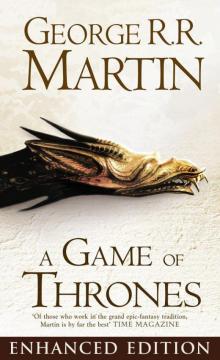 A Game of Thrones Enhanced Edition
A Game of Thrones Enhanced Edition Nightflyers & Other Stories
Nightflyers & Other Stories Armageddon Rag
Armageddon Rag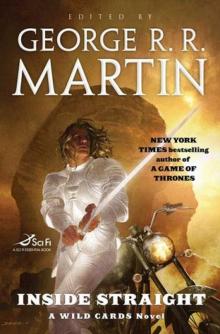 Wild Cards: Inside Straight
Wild Cards: Inside Straight A Song for Lya
A Song for Lya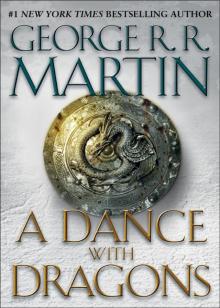 A Dance with Dragons: A Song of Ice and Fire: Book Five
A Dance with Dragons: A Song of Ice and Fire: Book Five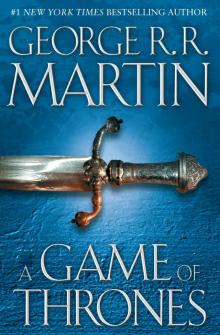 Song of Fire & Ice 01 - A Game of Thrones
Song of Fire & Ice 01 - A Game of Thrones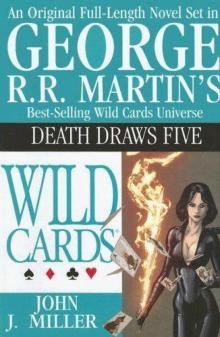 Death Draws Five wc-17
Death Draws Five wc-17 Turn of the Cards w-12
Turn of the Cards w-12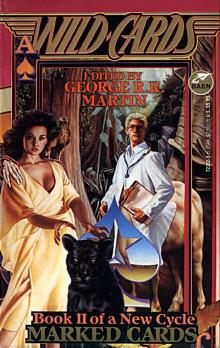 Wild Cards 14 - Marked Cards
Wild Cards 14 - Marked Cards Hunter's Run
Hunter's Run The Glass Flower
The Glass Flower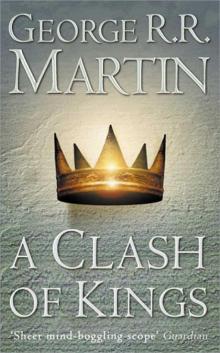 A Clash of Kings asoiaf-2
A Clash of Kings asoiaf-2 A Game of Thrones 5-Book Bundle: A Song of Ice and Fire Series: A Game of Thrones, A Clash of Kings, A Storm of Swords, A Feast for Crows, and A Dance with Dragons (Song of Ice & Fire)
A Game of Thrones 5-Book Bundle: A Song of Ice and Fire Series: A Game of Thrones, A Clash of Kings, A Storm of Swords, A Feast for Crows, and A Dance with Dragons (Song of Ice & Fire) Ace In The Hole wc-6
Ace In The Hole wc-6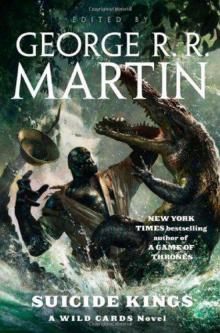 Suicide Kings wc-20
Suicide Kings wc-20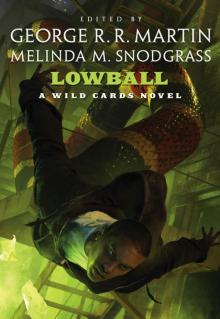 Lowball
Lowball Aces Abroad wc-4
Aces Abroad wc-4 George R. R. Martin's a Game of Thrones 4-Book Bundle
George R. R. Martin's a Game of Thrones 4-Book Bundle A Feast for Crows asoiaf-4
A Feast for Crows asoiaf-4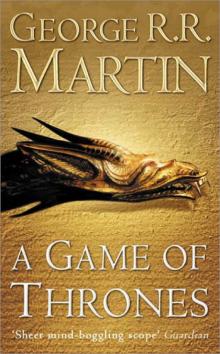 A Game of Thrones asoiaf-1
A Game of Thrones asoiaf-1 The Mystery Knight ttodae-3
The Mystery Knight ttodae-3 Double Solitaire w-10
Double Solitaire w-10 Wild Cards 15 - Black Trump
Wild Cards 15 - Black Trump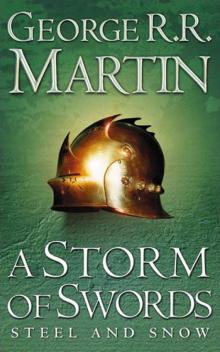 A Storm of Swords asoiaf-3
A Storm of Swords asoiaf-3 The Hedge Knight ttodae-1
The Hedge Knight ttodae-1 Dreamsongs 2-Book Bundle
Dreamsongs 2-Book Bundle The World of Ice & Fire
The World of Ice & Fire Starlady & Fast-Friend
Starlady & Fast-Friend Old Mars
Old Mars Fantasy For Good: A Charitable Anthology
Fantasy For Good: A Charitable Anthology Wild Cards V
Wild Cards V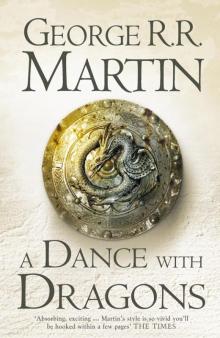 A Dance with Dragons asoiaf-5
A Dance with Dragons asoiaf-5 Dealer's Choice w-11
Dealer's Choice w-11 The Book of Magic
The Book of Magic A Game of Thrones 4-Book Bundle
A Game of Thrones 4-Book Bundle Texas Hold 'Em
Texas Hold 'Em Wildcards wc-1
Wildcards wc-1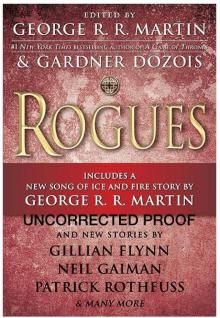 Rogues
Rogues Old Venus
Old Venus